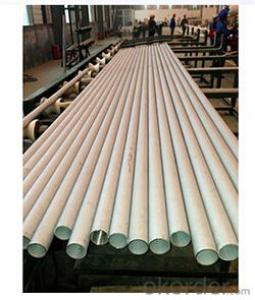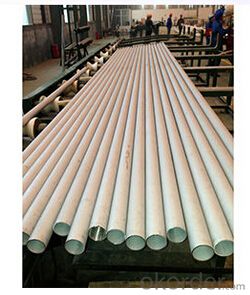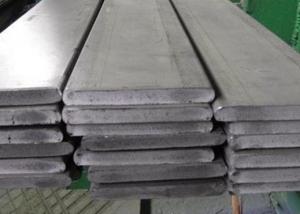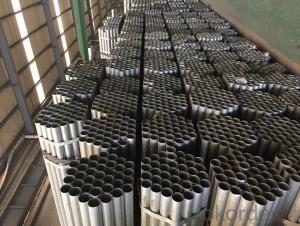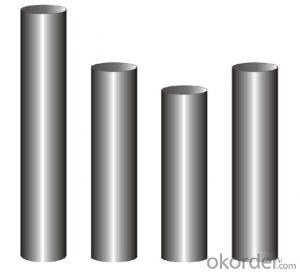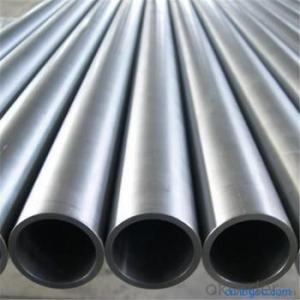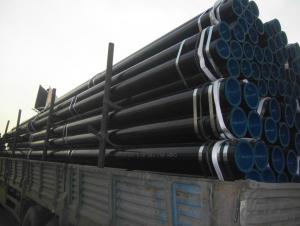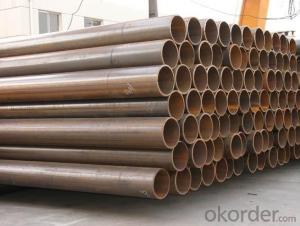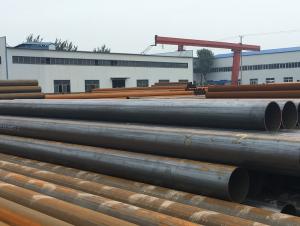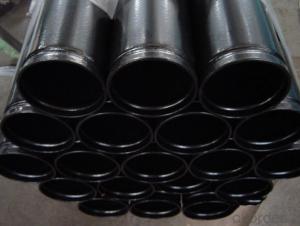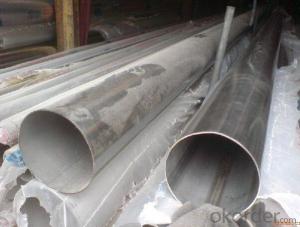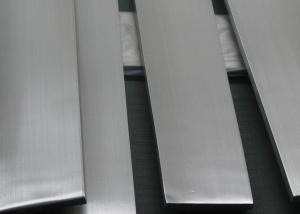s31803 stainless steel tube
- Loading Port:
- China Main Port
- Payment Terms:
- TT OR LC
- Min Order Qty:
- -
- Supply Capability:
- -
OKorder Service Pledge
OKorder Financial Service
You Might Also Like
Specifications
s31803 stainless steel tubeMaterial:304L,316L,316Ti,321,317L,310S,347H,904Letc.
Standard: A269, A213,
Cert:ISO
s31803 stainless steel tube
Standar duplex steel d: A269, A213, A312 201 stainless steel round tube
1. Material | TP304/304L, 316/316L, 310S, 317L, 321, 347H,etc. |
S31803, 32750, etc. | |
2. Sandard | ASTM, ASME, DIN, EN, ISO,JIS, GOST, etc. |
3. Type | Seamless |
4. Size rangetube | OD: from 6mm to 1000mm (NPS from 1/8'' to 40'') |
WT: from 0.7mm to 38mm (Schedule from 5S to XXS) | |
Length: fix length or un-fix length, Max 30meters | |
5. Produce process | Pilgering and cold drawn |
6. Surface process | Pickling and annealing |
AP tube | |
BA tube | |
7. Marking | JW, GRADE, seamless, STANDARD, SIZE, HT NO. |
8. Package | Bundles with waterproof cloth outside. |
or plywood box. | |
9. Min order quantity | 500 KG |
10. Sample | Yes |
11. OEM accepted | Yes |
12. Production capacity | 300 tons per month |
13. Payment term | T/T or L/C. |
14. Certificate | ISO 9001, PED |
15. Third party ertificate | BV, LR, SGS, TUV, CCS, ABS, etc. |
- Q: 304 stainless steel tube with the diameter of 25*2-3 is what mean
- 304 stainless steel tube with the diameter of 25*2-3 said: material for 304 (the equivalent of the American brand, Chinese numbered S30408 stainless steel or 06Cr19Ni10 stainless steel), diameter (OD) for 25mm, for the seamless steel pipe wall thickness of 2 to 3mm.
- Q: Can stainless steel pipes be insulated with polyetherimide?
- Polyetherimide (PEI) is an exceptional thermoplastic that exhibits remarkable thermal stability and insulation capabilities, making it a suitable choice for insulating stainless steel pipes. With its excellent resistance to heat, chemicals, and electrical conductivity, PEI can effectively insulate stainless steel pipes in diverse industries such as oil and gas, chemical processing, and aerospace. Moreover, PEI's high glass transition temperature enables it to withstand elevated temperatures without melting or deforming, further enhancing its appropriateness for insulating stainless steel pipes.
- Q: What does "stainless steel pipe" DN mean?
- Nominal diameter is the size of all piping accessories in the piping system. The nominal diameter is a convenient round integer for reference and is not strictly related to the processing size. The nominal diameter follows the letter "DN" followed by a number sign.
- Q: Why can't stainless steel tubes be cut with acetylene?
- That is because the iron element in the high temperature, if the above 99,6% will occur on the oxygen oxidation phenomenon is very strong, because of the heat transfer cycle, in order to make the cutting to continue uninterrupted, continuous heating it when cutting calories.
- Q: What is the difference between sanitary and industrial stainless steel pipes?
- The main difference between sanitary and industrial stainless steel pipes lies in their intended use and the level of cleanliness required. Sanitary stainless steel pipes are specifically designed for use in industries such as food, beverage, pharmaceuticals, and biotechnology, where maintaining high levels of cleanliness and hygiene is crucial. These pipes are polished to a smooth, easy-to-clean finish, and often have special features like removable fittings to prevent contamination. On the other hand, industrial stainless steel pipes are used in a wide range of applications, including oil and gas, chemical processing, and power generation. While they are still made of stainless steel, they may not have the same level of surface finish and sanitation requirements as sanitary pipes.
- Q: Can stainless steel pipes be used for high-pressure applications?
- Yes, stainless steel pipes can be used for high-pressure applications. Stainless steel is known for its excellent strength and corrosion resistance, making it suitable for handling high-pressure environments. It can withstand the high pressure without deformation or leakage, ensuring the safety and reliability of the system.
- Q: Can stainless steel pipes be used for semiconductor manufacturing?
- Yes, stainless steel pipes can be used for semiconductor manufacturing. Stainless steel is often chosen for its excellent corrosion resistance, high temperature resistance, and mechanical strength. These properties make stainless steel pipes suitable for various applications in the semiconductor industry, such as gas and chemical delivery systems, vacuum systems, and high-purity water distribution. Semiconductor manufacturing processes require the transportation of various gases, chemicals, and liquids, and stainless steel pipes can provide the necessary reliability and purity. The corrosion resistance of stainless steel ensures that the pipes will not contaminate the semiconductor materials or the manufacturing process. Additionally, stainless steel pipes can withstand the high temperatures involved in semiconductor manufacturing without compromising their structural integrity. Moreover, stainless steel pipes can be fabricated to meet the stringent cleanliness requirements of the semiconductor industry. They can be electropolished or passivated to remove surface impurities and contaminants, further enhancing their suitability for use in semiconductor manufacturing. Overall, stainless steel pipes offer a durable, corrosion-resistant, and high-purity solution for semiconductor manufacturing applications, making them a popular choice in the industry.
- Q: What is the difference between electropolished and bright annealed stainless steel pipes?
- Electropolished stainless steel pipes undergo a process called electropolishing, which involves the removal of surface impurities and oxidation through an electrochemical process. This results in a smooth, shiny, and corrosion-resistant surface finish. On the other hand, bright annealed stainless steel pipes are heat-treated to achieve a bright, reflective surface finish. While both processes enhance the aesthetics of the pipes, electropolishing provides additional benefits such as improved cleanability and increased resistance to corrosion.
- Q: Can stainless steel pipes be insulated with polyimide?
- Yes, stainless steel pipes can be insulated with polyimide. Polyimide is a highly versatile and durable material that can withstand high temperatures, making it suitable for insulating stainless steel pipes.
- Q: How do you calculate the required wall thickness of stainless steel pipes?
- The required wall thickness of stainless steel pipes can be calculated using various factors such as the internal pressure, external pressure, temperature, material properties, and safety factors. These calculations typically involve using codes, standards, and engineering principles to ensure that the pipe can withstand the intended operating conditions without failure or deformation.
Send your message to us
s31803 stainless steel tube
- Loading Port:
- China Main Port
- Payment Terms:
- TT OR LC
- Min Order Qty:
- -
- Supply Capability:
- -
OKorder Service Pledge
OKorder Financial Service
Similar products
Hot products
Hot Searches
Related keywords
